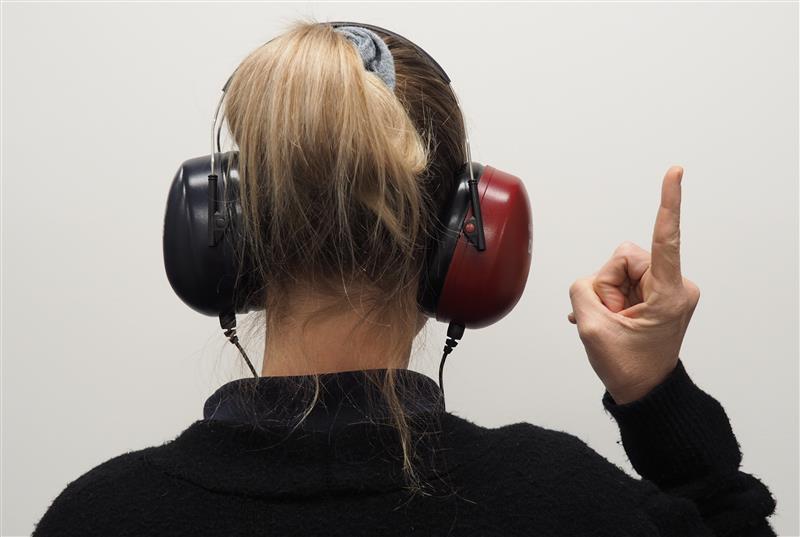
Hearing loss is fairly common in musicians. Here are some steps you may take if you enjoy music to safeguard your ears.Talk about enduring pain to create creativity.
You probably already know that musicians, whether classical or not, have a very significant risk of hearing loss. That is a risk of the job that is commonly acknowledged in many places. However, a lot of people are unaware of how serious a risk it actually is.
A hearing loss caused by loudness is roughly four times more common among musicians than in non-musicians, according to the American Association of Retired Persons (AARP). Additionally, their likelihood of getting tinnitus is 57% higher. If those figures alone aren't enough to persuade you, simply think about the numerous well-known musicians that are currently hard of hearing:
- Eric Clapton
- Barbara Streisand
- Will.i.am
- Neil Young
- Pete Townshend
- Roger Daltrey
- Ozzy Osbourne
- Danny Elfman
Even still, it is not an exhaustive list. But our argument is now clear. Your sense of hearing is one of your most important instruments as a musician. Almost every part of your line of work requires auditory accuracy.
Losing your hearing is similar to losing your vision as an artist. You must therefore take all reasonable safety measures to safeguard your ears. Even in the presence of excessively loud live concerts, you may safeguard your hearing health by following these five actions.
Always wear safety gear
The good news will be presented first. There are many specialist protective earplugs made especially for the profession of music because hearing loss is a common ailment among musicians, like Audionova Music. You can protect your ears without sacrificing performance thanks to these specially designed gadgets that filter dangerous noise levels while maintaining audio fidelity.
When possible, minimise noise
As a musician, there are other hazards to your hearing health outside the stage. Our daily lives are filled to the brim with noise that could be damaging or upsetting, and our ears weren't designed for the modern world. It is your responsibility as a musician to be aware of the risks and take precautions to keep yourself safe.
When using hearing protection, that may entail avoiding particular gatherings or locations. Fireworks shows, athletic events, work locations, nightclubs, taverns, and even congested traffic may be among them.
Reduce the volume
Your hearing health is at risk in a variety of situations. Even too much studio time might have negative long-term health repercussions. Take the late Beatles producer George Martin as an example.
He wasn't a musician, but because of how much time he spent in the studio, he was almost completely deaf when he retired. We also suggest utilising top-notch noise-canceling headphones in addition to keeping all sound at a tolerable volume. More importantly, make sure to stop frequently so that your ears may rest.
Avoid Inserting It Into Your Ear. Really, just refrain
It doesn't matter if it's an ear scraper or a cotton swab. When in doubt, avoid putting anything alien in your ears. Visit an audiologist for a checkup if itchiness, irritation, or earwax accumulation are truly a problem for you.
Sticking objects in your ears puts you at risk for developing an ear infection as well as rupturing or perforating your eardrum. Even though the injuries will heal with time, you won't be able to do anything for at least a week.
Short-term satisfaction is never worth the danger of being unable to function for that long.
Avoid Inserting stick Into Your Ear. Really, just refrain
It doesn't matter if it's an ear scraper or a cotton swab. When in doubt, avoid putting anything alien in your ears. Visit an audiologist for a checkup if itchiness, irritation, or earwax accumulation are truly a problem for you.
Sticking objects in your ears puts you at risk for developing an ear infection as well as rupturing or perforating your eardrum. Even though the injuries will heal with time, you won't be able to do anything for at least a week.
Short-term satisfaction is never worth the danger of being unable to function for that long.
Regularly examine your hearing
We at Connect Hearing believe that everyone should at the very least think about getting an annual audiology exam, especially as they age. The demand is considerably greater for musicians. We even hazard a guess that you ought to get your hearing evaluated twice a year or more, which is even more frequently than the average individual.
Catching noise-induced hearing loss early can be the difference between mild hearing loss and permanent deafness if you are experiencing its early warning signals. Additionally, audiologists can offer you helpful guidance on how to protect your hearing even during a demanding performance. Pay attention to them.
One of the occupations with the highest risk of hearing loss is music. Even while there are numerous experimental therapies that have the potential to end even irreversible deafness, those therapies are still many years away from becoming widely accessible. Take care of your hearing in the interim.
Because without it, you would also be without your music.
It's ideal to keep yourself as educated with your hearing aids and a new breakthrough in the technology. Ask your query via Book an Appointment today. For more information visit https://hearing.careinc.ca or you can call us today at (403)605-6300